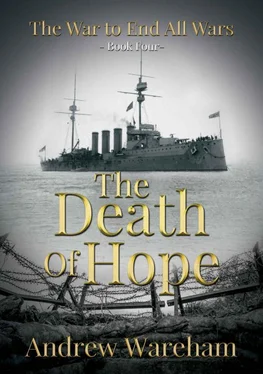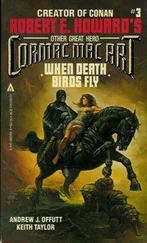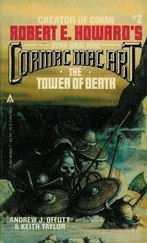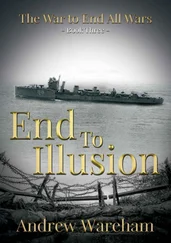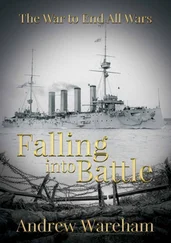“Zero nine hundred hours, is that, Sergeant?”
“Not in the Home Establishment, sir. Only used overseas, sir, the twenty-four hour clock. Don’t have twenty-four hours in the working day in England, sir.”
Braithwaite showed irritated.
“Bloody well see about that tomorrow, man!”
“Yes, sir. Your drivers know where to go, sir. They will take you to the Waterloo Mess building, sir. Tenth and Twelfth Battalion of the Bedfords there, sir, which is why you were put there.”
“Twelve battalions in the Regiment now, Sergeant?”
“No, sir. Fifteen. Not the biggest, the Hampshires have got twenty-two, sir, might be others with more. Spread all over the world, as well. Not usual to have two of the same regiment together, sir.”
They knew almost none of the officers, recognising a few faces who had been transferred from the First and Second to offer professional expertise. Unsurprisingly, they were known themselves, being renowned figures in the Regiment.
Dinner partook of a formality unknown outside of the chateaux of the generals in France. All officers were dressed and the settings were of silver. The meal had only five courses, the President of the Mess, a Major Danby, apologised, blaming wartime hardships.
“How do you find things in France, General? I should imagine the Mess is able to lay its hands on some good wine!”
“I am told they can do so in the rear areas, Major. There is no mess as such in the Trenches, of course – the officers eat in their dugouts, sharing the food sent up for the whole battalion. At Brigade I was able to do a little better, but still only a soup and a main course, accompanied by water or vanrouge. You won’t have met up with that particular vintage in England – it tastes a little less harsh than battery acid but probably has a similar effect on the human gut! Safer than water, however, and I cannot drink tea with my meal!”
“Truly, General?”
The Major wondered if he was not the victim of some elaborate and obscure joke. He had observed that those who had spent time in France tended to be almost contemptuous of the Home Establishment, thought that might be the case here.
“Utterly, Major. When you come out, you will discover the reality. I presume your battalion will join the New Army in May?”
“No, General. We are bound for Ireland next month. Garrison there. Ourselves for the Curragh and the Twelfth for Cork.”
“Ah, well. We cannot all serve where the glory is.”
The Major did not seem much comforted by that reflection, though he did think they would eat better in Ireland.
Wincanton gravitated to Richard’s side in the Mess later. He had been uncharacteristically quiet, Richard thought, hardly saying a word over dinner, unlike his normal braying self.
“It’s not like real soldiering, is it, sir? I don’t think they know what it means to have stood in a trench. I am not to say I am the best of soldiers, sir. I do have some idea of what is what, though.”
“You do, Wincanton. Your Mention is sufficient evidence of that. A pity there is no ribbon for a Mention. There should be something. It is a recognition of gallantry and should be displayed with pride.”
Richard deliberately spoke just loud enough to be overheard. The word spread quickly that the staff lieutenant had an award for gallantry, caused an amount of irritation among the younger men who now suspected that he had remained silent in their company for looking down on them.
The Major was heard to say that it made sense – an officer with Baker’s record would want fighting men about him.
“Might be one of the ‘boy brigadiers’ – the gilded youth, and all that – but nobody can argue his prowess. Don’t know how old he is, mark you – could be a youthful forty, which is still young for the rank. Personally, I suspect he’s no more than thirty.”
Wincanton was into his second brandy, more than sufficient to breach the bounds of discretion in his case, his head being weak for alcohol as well.
“He is twenty-one, Major. Just. He looks older for having the years at sea before coming out to Flanders. That puts years on all of us.”
“I might have thought that he would have needed more experience before reaching his rank.”
“Experience of what, Major? He has been out since August ’14, almost unbroken. Nobody can have more experience than that. Not of the war we are fighting now.”
The word ‘we’ did not go down well – it seemed to imply there were those who fought and lesser souls who did not. Wincanton was unaware he had caused offence, finished his brandy and thought he might be wise not to take a third. Richard noticed him wave a mess waiter away, was surprised by the evidence of maturity.
“Don’t see much in the way of brandy in the Trenches, you know. No head for alcohol, these days – not like you chaps who can sit in a Mess every night!”
Conversation was strained after that.
The visiting pair retired early, pleading a long day of travelling and too many disturbed nights prior.
Richard slept badly, the bed too comfortable, the room too warm.
They breakfasted together, made their farewells and boarded the front vehicles of the waiting convoy.
There were two staff cars and four lorries lined up. Paisley and Braithwaite’s batmen threw their half a dozen suitcases and their own kitbags aboard the first lorry, waited for the other three to fill up, wondering who else was coming with them.
Major Danby enquired if the rest of their baggage was following behind.
“I remember going down to Cape Town, sir, as a captain. I had eight trunks and the general must have had sixteen! Quite filled the hold, the sailors told me, all of us together!”
Braithwaite had little patience early in the morning.
“Did the same myself, in that war, Danby. This is a different kettle of fish! In the line, one requires a pair of working uniforms and nothing more. Behind, in the rear areas, one needs a little more but certainly no great mass of dress and undress and parade and ceremonial and ball dress as one did at peace. Those days are gone, major. We are a fighting army now, concerned more with killing the Hun than looking pretty! Good day to you now. Thank you for your hospitality.”
The three vehicles drove off, leaving the remainder to return to their workshop.
“Bloody trunks, Baker!”
“Two separate armies, sir. Those of us who have been out and those who have not. Idling in Ireland! Complaining because there are no more than five courses for dinner! I would like to have seen Danby sitting down to lukewarm mutton stew as his whole dinner!”
“Very much so, Baker! Glad we are to be at a distance. Had we remained in Aldershot we should inevitably have been invited to Guest Nights with them. No doubt we shall have to put up with that sort of thing in Arborfield – bound to be more formality than we have enjoyed in Flanders. Not to worry! You will need to learn the ropes for the post-war Army. I presume you will stay in?”
“Probably, sir. Depends to an extent on Primrose. She may have plans for me. Provided they are not too outrageous – and I trust her good sense – I shall fall in with them. Be happy to, in fact. What of you, sir?”
“I think my lady wants me out, Baker. We have an estate to care for and she has some substantial holdings of her own – shares and things. I think she has it in mind that we shall make a splash in the City and in the West End after the war. If that is what she wants – well and good! Like you, Baker, I am lucky in my lady.”
There was a parade awaiting them as they reached Arborfield, a telephone call from Aldershot giving the timing.
The Adjutant of the battalion greeted them, addressing General Braithwaite.
Читать дальше
